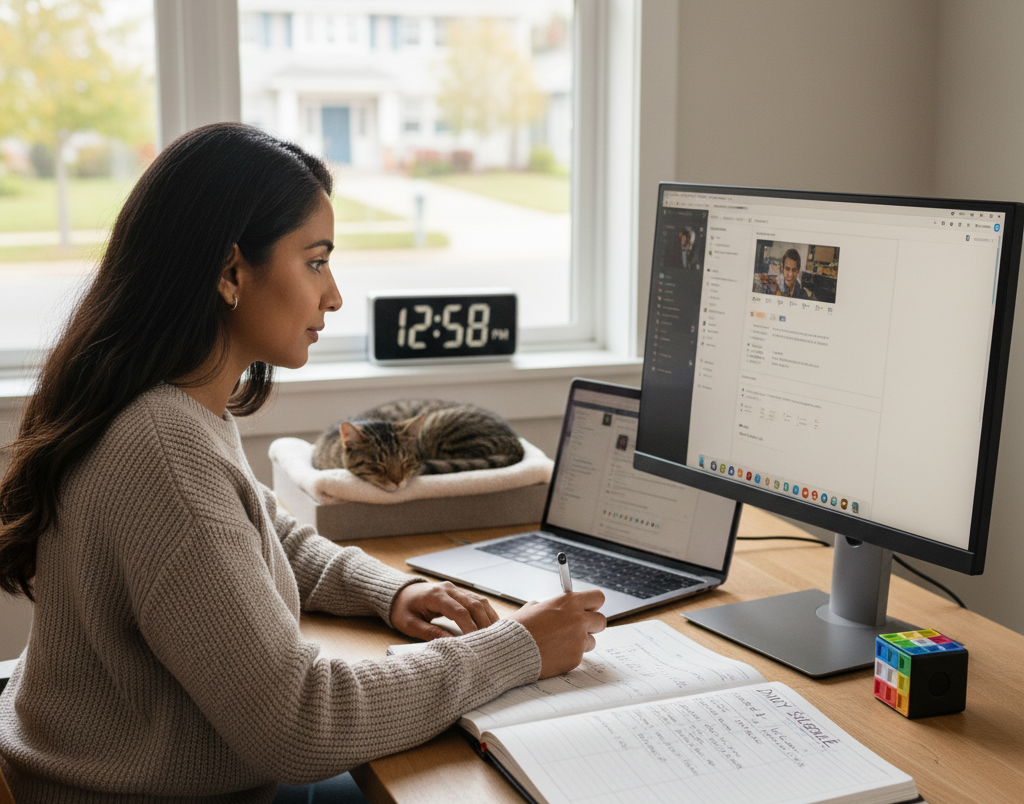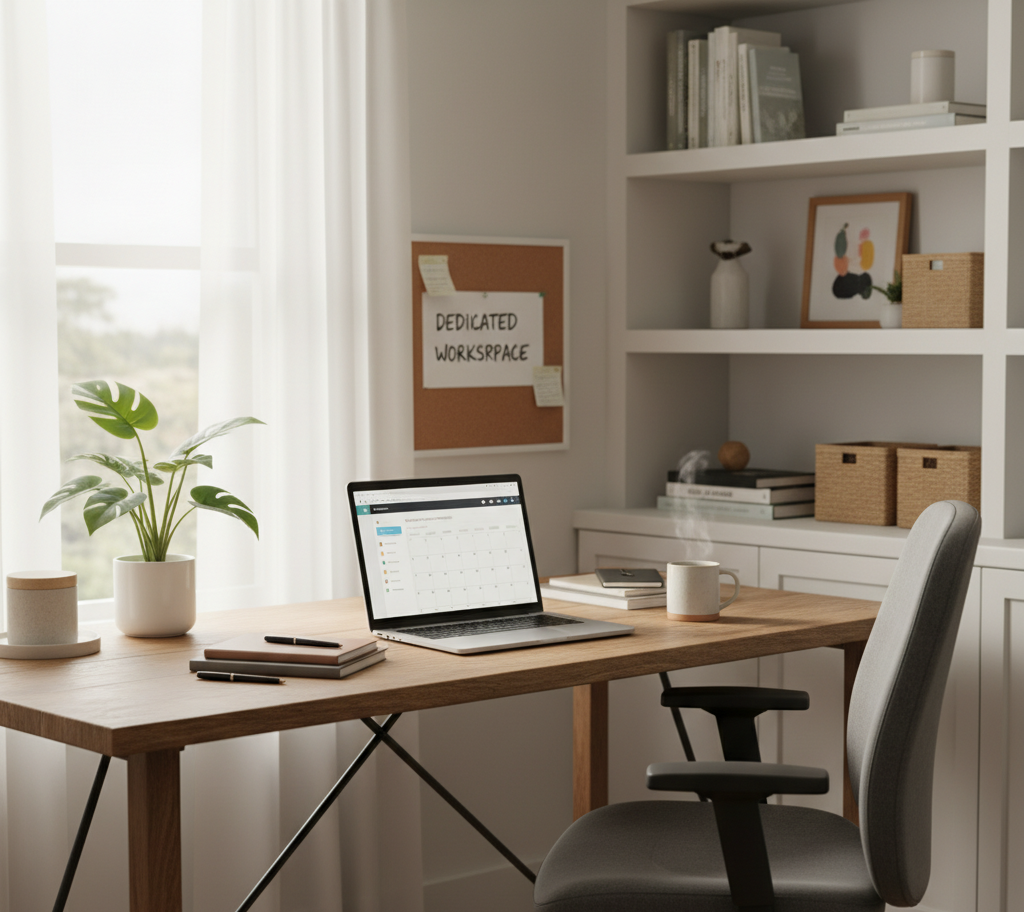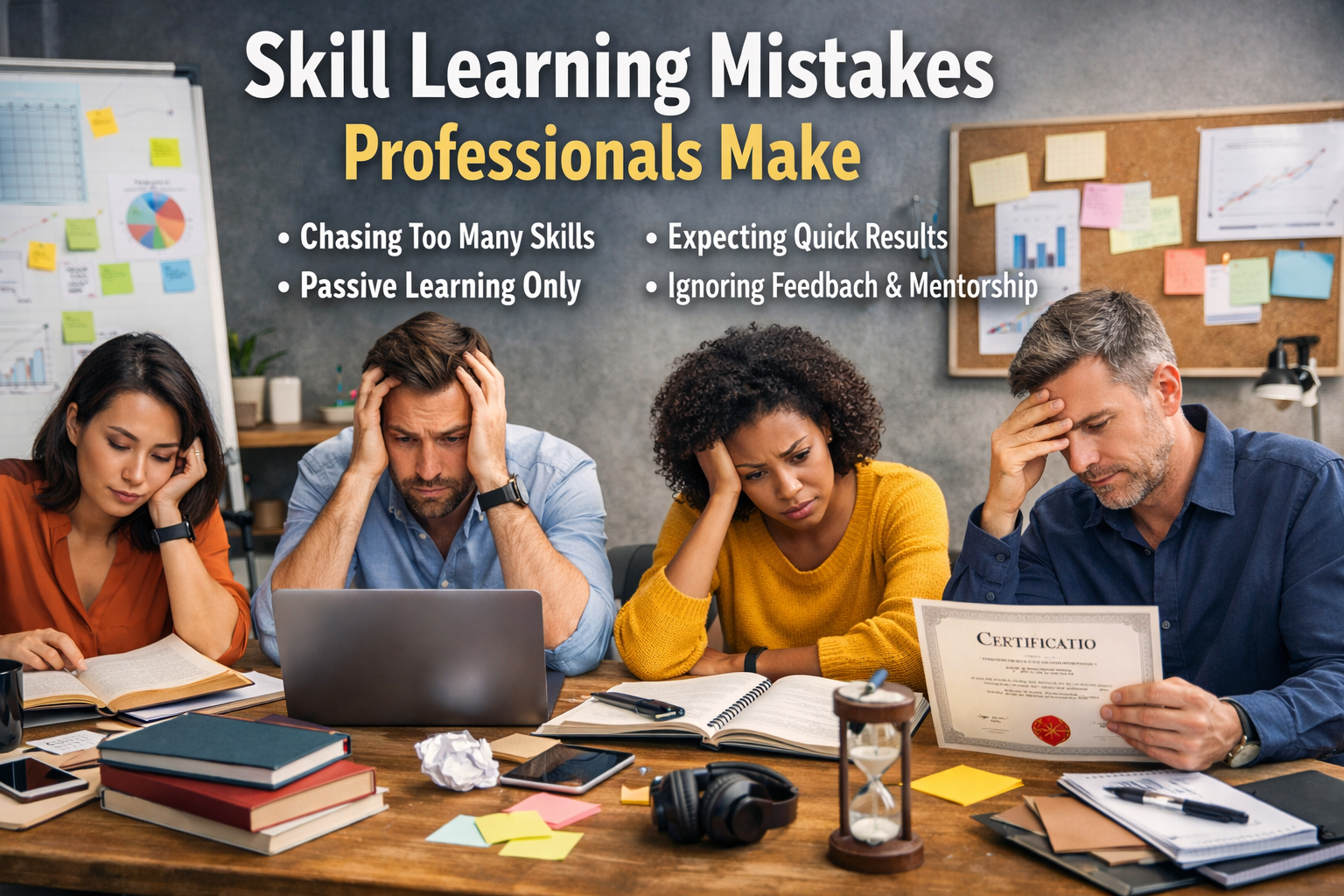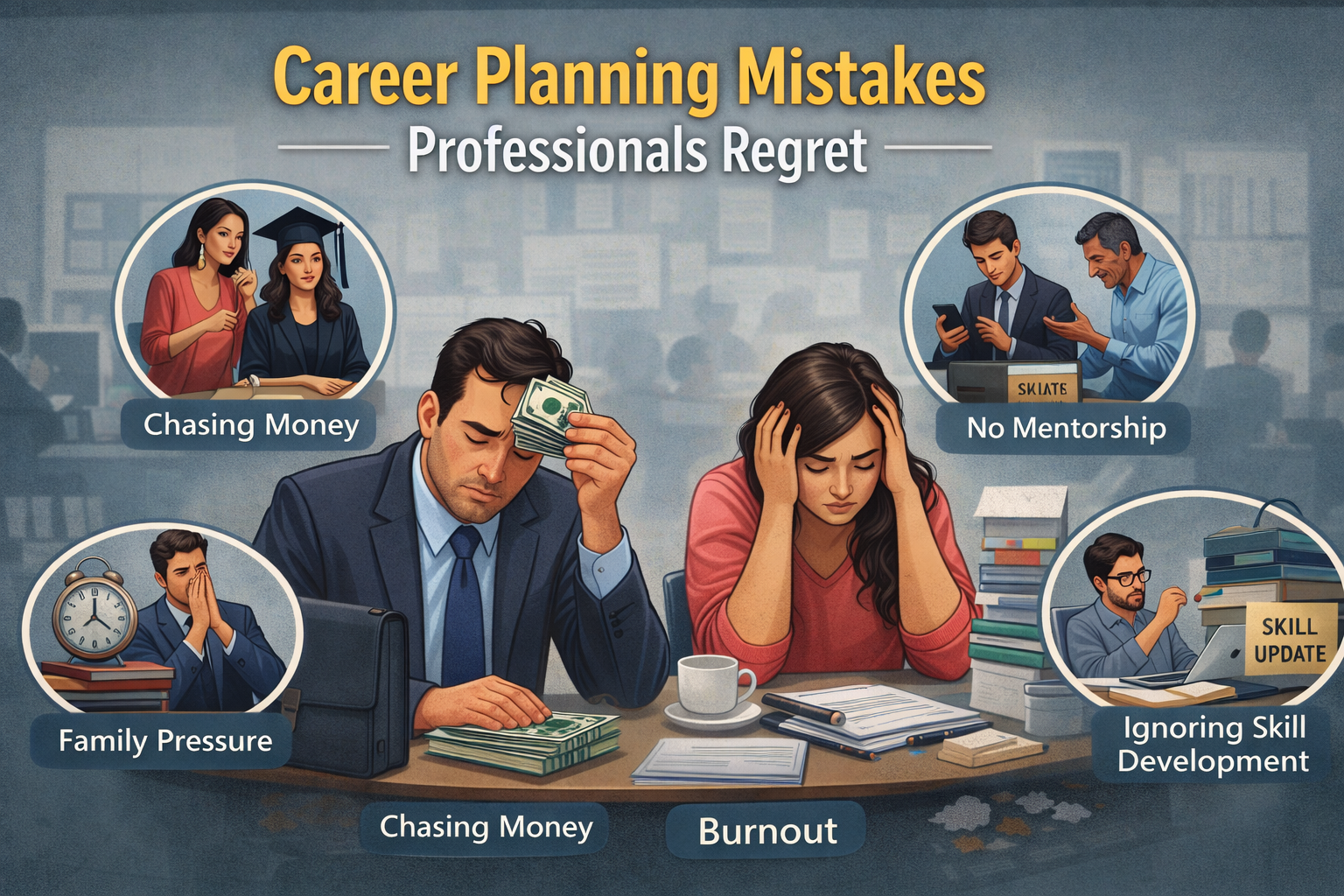Introduction
Working from home sounds like a dream: no daily commute, no office gossip, no one peeking over your shoulder while you type. You get to choose your schedule, wear what you want, and set up your ideal workspace. But once the novelty fades, most remote workers confront an unexpected challenge: staying focused. Instead of the office distractions you once complained about, new ones appear: laundry staring at you from across the room, notifications popping up every few minutes, family members asking, “Are you free for a second?”, or the overwhelming urge to scroll social media “just for two minutes” that somehow turns into twenty.
The biggest misconception about remote work is assuming productivity comes naturally when you’re in a comfortable environment. In reality, working from home requires more discipline than working in a structured office. Without boundaries, routines, or accountability, your brain treats your home like a place for leisure, not productivity. This mismatch leads to procrastination, constant multitasking, and fragmented focus that leaves you busy all day but feeling unaccomplished.
The good news? Staying focused while working from home is not about forcing yourself to “try harder.” It’s about redesigning your environment, mindset, and daily habits so that focus becomes effortless instead of forced. Whether you’re a freelancer, employee, entrepreneur, or student navigating remote life, there are proven strategies to regain control of your attention and get more done in less time without burnout or guilt.
In this guide, you’ll discover a complete focus framework designed specifically for remote workers. From optimizing your workspace and creating mental boundaries to managing notifications, energy levels, and digital temptations, every section offers practical steps you can apply immediately. Let’s turn your home into a productive zone, not a distraction hot spot.
You can read the summary of this article here.
Create a Workspace That Trains Your Brain to Focus
Why Your Environment Shapes Your Attention
Most people try to be productive anywhere on the couch, in bed, at the dining table, ut the brain doesn’t perform well in mixed-purpose environments. When you work in the same spot where you relax, your brain receives conflicting signals. That’s why you might feel sleepy typing emails from your bed or distracted while working beside the TV. To stay focused while working from home, your workspace must tell your brain: “This is where deep work happens.”
Create a dedicated work zone, even if it’s a corner of your room or a small desk by the window. Keep it clean, clutter-free, and equipped with essentials laptop, notebook, water, and good lighting. Add small cues to signal “work mode,” such as a specific mug, headphones, or even a particular scent using candles or essential oils. When these elements are consistently associated with work, your mind slips into concentration faster with less resistance.
If your home is noisy or shared with family members, noise-canceling headphones or brown noise playlists can be game changers. You can even use visual cues like a “busy” sign or wearing specific headphones to let others know not to interrupt. Over time, this physical boundary will help you mentally switch on without struggling for motivation daily.
Master Time Blocks Instead of Chasing Constant Productivity
Structure Your Day with Predictable Focus Windows
Trying to stay focused for eight hours straight is unrealistic. Instead of working endlessly, divide your day into clear time blocks, periods where you do one thing with full attention, followed by short breaks. Techniques like Pomo doro (25 minutes of work, 5-minute break) or 52/17 rule (52 minutes work, 17 minutes rest) are scientifically proven to improve sustained focus.
Start your day by identifying your three most important tasks. Assign time blocks to them rather than reacting to emails and chats all day. Label your blocks based on energy typ : deep work blocks for creative or analytical tasks, shallow work blocks for admin tasks like responding to messages. During deep work, mute notifications and avoid multitasking completely. Your brain is 40% less efficient when toggling between tasks, even if it feels fast.
Use breaks wisely, don’t jump into social media. Instead, stand up, stretch, hydrate, or get sunlight. These micro-reset moments recharge cognitive function and help you return sharper. When you train your brain to work in rhythms rather than chaos, discipline feels natural.

Reduce Digital Distractions Before They Hijack Your Focus
How to Control Your Devices Instead of Letting Them Control You
Phone notifications are designed to interrupt you, not to assist you. A single “ping” can derail your focus for up to 20 minutes, even if you don’t open the app. That’s why staying focused while working from home requires aggressive notification management.
Start by turning off all non-essential alerts, especially social media, shopping apps, and random subscriptions. Move distracting apps off your home screen or install website blockers like Freedom, Cold Turkey, or Stay Focusd to block Instagram, YouTube, or news portals during work hours.
Use your phone intentionally, not instinctively. Keep it out of reach during deep work blocks. If you need it for work, enable Do Not Disturb with custom exceptions for important contacts. Another powerful trick is to switch your phone display to grayscale mode. Without bright colors, scrolling becomes instantly less appealing.
If your distractions come from work itself, such as constant Slack or email pings, set communication boundaries. Let your team know preferred response windows or set status messages saying “Focusing Available at 2 PM.” Focus thrives in clarity, and most distractions disappear when you decide they’re not urgent.
Protect Your Energy, Not Just Your Schedule
Focus Comes from a Well-Rested Brain, Not Willpower
Staying focused isn’t only a discipline problem; it’s often a biology problem. When you lack sleep, hydration, movement, or proper meals, your brain simply doesn’t have the fuel to perform. Instead of asking, “Why am I so distracted?” ask, “Is my body even ready to focus?”
Start your day with movement, even if it’s just stretching or a 5-minute walk. Sunlight in the morning regulates your circadian rhythm, improving alertness and mood. Avoid skipping meals or relying solely on caffeine, as this causes energy crashes that mimic distraction. Eat balanced foods that stabilize energy, such as nuts, fruits, eggs, oats, or yogurt during your work blocks.
Plan mental resets in your schedule. If your focus drops, don’t push through endlessly; switch to a light task, hydrate, or step outside. This prevents burnout and keeps your mind refreshed. You’re not a machine; productivity is often about recovery, not intensity.
Conclusion
If you’ve ever felt guilty for being “undisciplined” while working from home, let this be your reminder: focus is not about willpower, it’s about design. When your environment is full of triggers, your notifications constantly tug at you, and your energy levels crash by afternoon, distraction isn’t a personal failure,e it’s a natural response.
Instead of blaming yourself, build systems that guide your brain toward clarity. Set up a workspace that tells your mind, “This is where I perform.” Structure your time into focus blocks rather than expecting all-day motivation. Remove digital temptations before they tempt you. Fuel your brain like an athlete preparing for performance. With small adjustments, you stop fighting distraction and start flowing into focus.
Working from home is one of the greatest freedoms of modern life but freedom without structure quickly becomes chaos. When you learn to manage your time, space, and energy, remote work becomes not just convenient, but powerful. You’ll finish your day with more done in four focused hours than in eight scattered ones.
So, don’t wait for the perfect schedule or quiet house. Start with one improvement today. Choose a workspace corner. Silence a few apps. Block your next 25 minutes for meaningful work. Focus is built moment by moment and every moment you reclaim is a win.
Your home can be your greatest productivity partner. You just have to teach it how.
Find Your Dream Job Today Explore Endless Career Opportunities and Secure Your Next Role with Best Job Tool







Leave a Reply